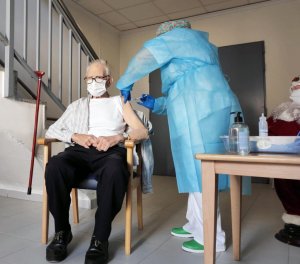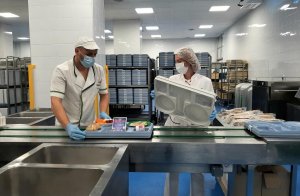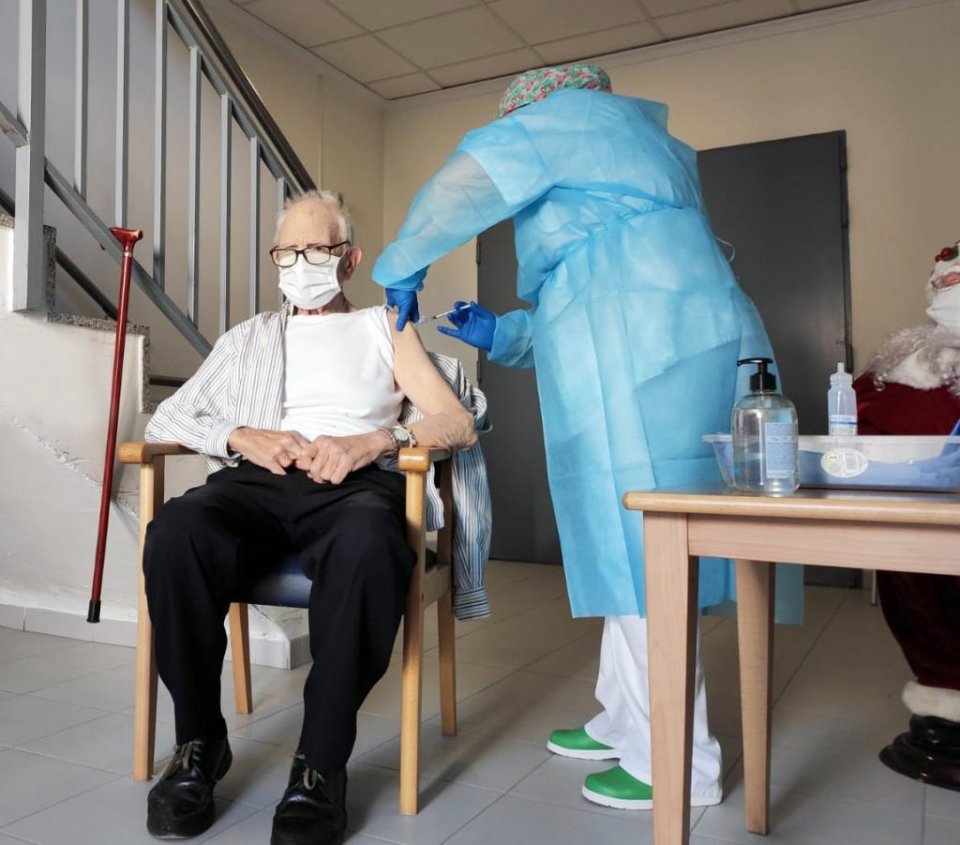Latest: Coronavirus in Spain figures (11 Jan)
Vaccinations have begun
From today [Sunday], the first Coronavirus vaccinations are being rolled out across the region. The first 800 doses of the Pfizer/BioNTech vaccine will be given to carers and those who live in residences for the elderly. Batiste Martí, aged 81, was the first Valencian to receive the Covid-19 vaccination on Sunday. He is a resident at a care home in Rafelbunyol.
Seven residences, which have had no active cases of Covid-19 for 90 days, have been selected to start the process. By 15 January the aim is to administer the first dose of the vaccine in all residences, reaching a total of 133,000 doses by the end of the month.
The process will continue with some 30,000 doses being administered each week and by the end of March the health department aims to vaccinate 188,000 Valencians.
ALSO READ: 96-year-old lady is first to be vaccinated against Covid-19 in Spain
The next group to receive the vaccine after residents will be frontline health workers followed by other health professionals. After this will be those who need continuous care (third degree dependency).
The vaccine is not compulsory but the health department will take note of all those who refuse to be vaccinated. The Spanish Health Ministry has released a list to summarise how it has divided the entire Spanish population into 15 groups in order to administer vaccinations.
ALSO READ: Spain’s Health Ministry divides the population into 15 groups for vaccination
You can also click here for further details (in English) of the key points of Spain’s Covid-19 Vaccination Strategy.
▶️ Así ha sido el momento en que Batiste Martí ha recibido la vacuna contra la #COVID19 #YoMeVacuno pic.twitter.com/slZFnOSv12
— GVA Sanitat (@GVAsanitat) December 27, 2020
Brexit deal saves region 310 million euros
The Brexit deal reached between the UK and Europe on Christmas Eve has come as a huge relief to many. Had there been a no-deal, the cost to the Valencian region in terms of duty on goods would have been around 310 million euros, with 200 million relating to exports to Britain and the rest on products imported from the UK.
The main export from Valencia to the UK is cars, along with component parts, which represents 50%, followed by agri-foods at 20%. The agreement allows for the free movement of goods and services, without which the additional costs of duties would have been paid by the consumer, importer or exporter. The tariffs among export companies could have reached an average of 8% and in the case of citrus fruits up to 16%, as was explained to EFE news agency by Vicente Mompó, head of the International department at the Valencia Chamber of Commerce.

School holidays begin, but when will they end?
Schools across the region broke up for the Christmas holidays on Tuesday having reached the end of a difficult and unusual term.
Education hasn’t turned out to be the great focus of Covid-19 infections as had been feared at the start of September. Schools have worked hard to maintain separation of groups, to ventilate classrooms and sanitise hands regularly, all this while wearing face masks, both teachers and students from six years upwards.
Teachers agree it hasn’t been easy giving classes with a face mask on but the measures appear to have worked as education accounts for only a tiny fraction of infections. In the UK for instance, where face masks are not obligatory in class, the population group with the highest infection rate is secondary school children.
It has also been shown that schools must be kept open at all costs and, perhaps surprisingly, the students I’ve spoken to all agree that being back in class is better than learning online.
ALSO READ: ‘Ley Celaá’ – the key points of the new education law passed in Congress
Disparities have, however, continued to grow. Wealthier schools have been able to shuffle around dining rooms, gyms and storerooms to create new spaces, and some have even built new classrooms so that their students can have 100% face-to-face classes.
Meanwhile, many state-run schools have had to combine 50% online classes with 50% face-to-face, a situation which many fear will leave their students disadvantaged compared to those who attend school every day.
While the value of being in class cannot be denied, and there are no official plans to return to online classes en masse like in March, most students were told to take all their books home with them when they broke up for Christmas, ‘just in case’ schools said.
After two weeks of Christmas holidays and families getting together, although supposedly in groups of six, the government may decide to extend the holidays slightly or at least begin the new term with a few days of online learning.

Three Kings come to schools
Their majesties Melchior, Caspar and Balthazar came early and visited schools across the region this week to remind children to be good and to collect their letters.
At one school, María de Iciar in Riba-Roja, the Three Wise Men from the East arrived on horseback, having left their camels at the port for a well-earned rest, I’m reliably informed by one of their pages.
The school visits this year will have been more important than ever given that their traditional parades have been cancelled in an attempt to reduce Covid-19 infections.
Covid-19 hospital admissions continue to rise
This week there have been 9,129 new cases of Covid-19 infections (compared to 13,457 last week), 3,748 all-clears (8,333 last week) and there have also been 74 deaths (137).
There have been 241 new outbreaks of Coronavirus, (280 last week), of which 48 were work-related, just 10 were related to education and the large majority, 183, were related to socialising.
As of Saturday, there were 1,544 people in Valencia’s hospitals suffering with Covid-19, up considerably on last week’s 1,154. Of those in hospital, 246 were in intensive care units, up on last week’s 221.
As the main source of contagions is socialising, the festive season is likely to lead to an increase in infection rates and more pressure on hospitals and health workers.
Click here for all previous reports on: Coronavirus in Spain

Hospital treat
Being in hospital at any time can be a miserable experience but even more so over the holiday period, especially at this time where having someone to accompany you is strictly limited or not allowed at all. To make patients’ hospital stays more bearable, public-run hospitals are providing special festive meals, adapted to patients’ dietary needs of course.
Goodbye 2020
As this strangest of years comes to a close, I would just like to thank you for accompanying me and reading my articles which I hope have been of use. As we begin 2021, with the vaccine in sight and there is hope that soon things will return to some sort of normality, I wish you a healthy and happy New Year 2021 and to quote a great 90s club anthem, Things can only get better!
Also read: Valencia Region tightens its Covid-19 restrictions from 21 Dec until 15 Jan
Click here for all our reports from the Valencia Region
Sign up for the FREE Weekly Newsletter from Spain in English
Please support Spain in English with a donation.
Click here to get your business activity or services listed on our DIRECTORY
Also read: Valencia in English (20 Dec)
Also read: Valencia in English (13 Dec)
Also read: Valencia in English (6 Dec)


